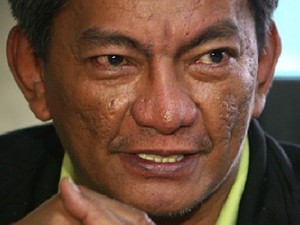
Albay Gov. Joey Salceda, an economist, said that Japan’s fear of China’s increasing military and financial might would likely trigger the second massive outflow of Japanese direct investments. INQUIRER FILE PHOTO
MANILA, Philippines—The Philippines is well poised to profit from Japan Prime Minister Shinzo Abe’s move to steer clear of China and move to Southeast Asia for capital expansion.
Trade and Industry Secretary Gregory L. Domingo told the Philippine Daily Inquirer: “I agree we will benefit, we are already seeing some of it now.”
Japan is the country’s biggest business partner with total trade and investments of $13 billion and the third biggest source of tourists.
Albay Gov. Joey Salceda, an economist, said that Japan’s fear of China’s increasing military and financial might would likely trigger the second massive outflow of Japanese direct investments.
Salceda noted a repeat of the effect of the 1987 Plaza Accord where the United States, France, West Germany, United Kingdom and Japan agreed to force the appreciation of the yen from 248 to 78 per US dollar to help the American economy recover.
“The Philippines was not able to optimize the benefits due to coup-driven political instability post-EDSA and aggressive competitive marketing by Malaysia, Thailand and Indonesia. We cannot afford to lose out again on this FDI (foreign direct investment) bonanza which I consider to be the single most important economic factor in the Philippine horizon,” said Salceda.
Salceda said that if the Philippines played its cards right, it could haul in at least $20 billion in Japanese investments in manufacturing over the next six years.
“I started to be an analyst during 1989, one year after the Plaza Accord. I remember quite distinctly that this was the number the analysts community were projecting,” said Salceda.
“This is the most benevolent economic and external discrete factor ever to happen in favor of the Philippines, only the Asian pivot of the US geopolitics comes second,” said Salceda.
Salceda suggested that given this massive opportunity, the Aquino administration should push for “more articulate ambition in infrastructure and more aggressive visioneering and faster execution.”
Another major concern of Japanese investors is the high cost of electricity in the country.
“Since power rates are even higher here than Japan’s — making us the highest in the world — so definitely it must be lower than Japan but the comparison should be with our competitors (not with China) like Malaysia, Thailand and Indonesia on the first tier and on the second tier – Vietnam and on the 3rd tier — Myanmar, Laos PDR and Kampuchea. On my many trips to Japan for our JICA project, I think we would have a normalized market share at P7.50 per kilowatt hour,” said Salceda.